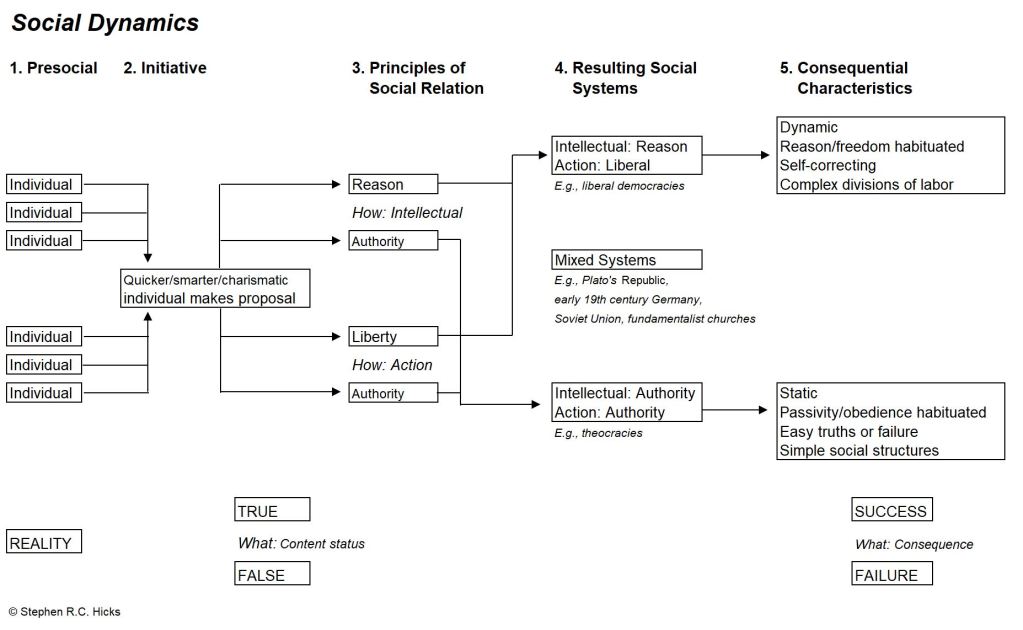What Moves History?
An Introduction to the Philosophy of History
By Stephen R. C. Hicks

Topic Outline:
Introduction: Why Rome’s Collapse, Renaissance, Modern Revolutions?
History and Philosophy of History
Philosophy of history’s three types of questions:
1. Metaphysical Questions about History
Divine Causation?
Materialist Causation?
Volitional Causation?
Individual or Collective Causation?
Does History Have a Direction?
2. Epistemological Questions about History
3. Value Questions about History
Our Question here: metaphysics only
Causation: Individuals
Five theses inform my discussion:
Thesis (1): Individuals are the agents, as against any form of collectivism: No matter how complex cultures and their institutions become, it is always individuals at the heart and soul of everything. Institutions don’t do anything; the individuals who make them up do.
Thesis (2): Individuals have volition; as against any form of determinism. Biological and environmental factors are always necessary parts of explaining the outcome of any action, and sometimes they are sufficient; but most human results involve human choice as a necessary factor.
Thesis (3): What individuals choose to believe as key; as against any theory that gives primacy to will or passion or emotion or instinct.
Thesis (4): Individuals’ philosophical beliefs are the most predictive and explanatory factor of the long-term consequences of their lives. This will be to argue that as important as political, scientific, economic, or artistic ideas, philosophical ideas are always operative and in the long run prevail.
Thesis (5): While philosophical beliefs are most powerful, how philosophical ideas are generated and disseminated socially is highly variable. Cultures generate and spread their philosophies via a variety of social institutions. This will be to argue against any top-down theory of philosophy’s social influence, e.g., theories that philosophers always function like generals at the head of an army or CEOs at the head of a corporation.
Why ideas?
Rejecting materialism
Which ideas?
Why philosophical ideas?
Causation: Cultures
The “Social Formation” flowchart [PDF]
Historical lessons from cultural change:
Three constants and one variable in social formation.